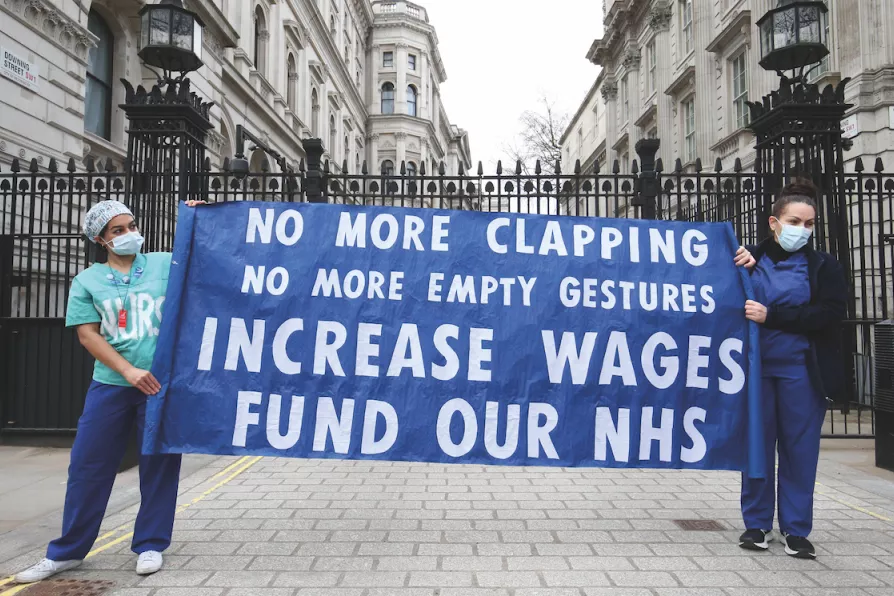As the RMT Health and Safety Conference takes place, the union is calling for urgent action on crisis of work-related stress, understaffing and the growing threat of workplace assaults. RMT leader EDDIE DEMPSEY explains
We cannot settle for half measures
We need an openly political and co-ordinated fightback against any kind of privatisation of the NHS, rather than a slightly slower path to its annihilation, writes HELEN O’CONNOR


WHEN the NHS was founded after the second world war, this country was in approximately £27 billion of debt.
The Labour Party had been voted into power overwhelmingly by a working class who were determined not to be poor any more.
The NHS and other social welfare reforms were demands that were conceded under pressure. The people demanded a decent standard of living for themselves and their families in a post-war world.
Similar stories

MATT WRACK issues a clarion call for a rejuvenation of public services for the sake of our communities and our young people

Our members face daily abuse, being spat at, sometimes even deadly assaults, and employers fail to take the issue seriously despite the increasing danger, writes RMT general secretary EDDIE DEMPSEY

Behind Starmer’s headline-grabbing abolition of NHS England lies a ruthless drive to centralise control so that cuts of £6.6 billion can be made — even if it means reducing cancer services and clinical staff, writes JOHN LISTER

Diverting public funding to grow private-sector ‘spare capacity,’ actively undermines the funding and staff available to the NHS and results in a worse service, write JOHN PUNTIS and TONY O’SULLIVAN










